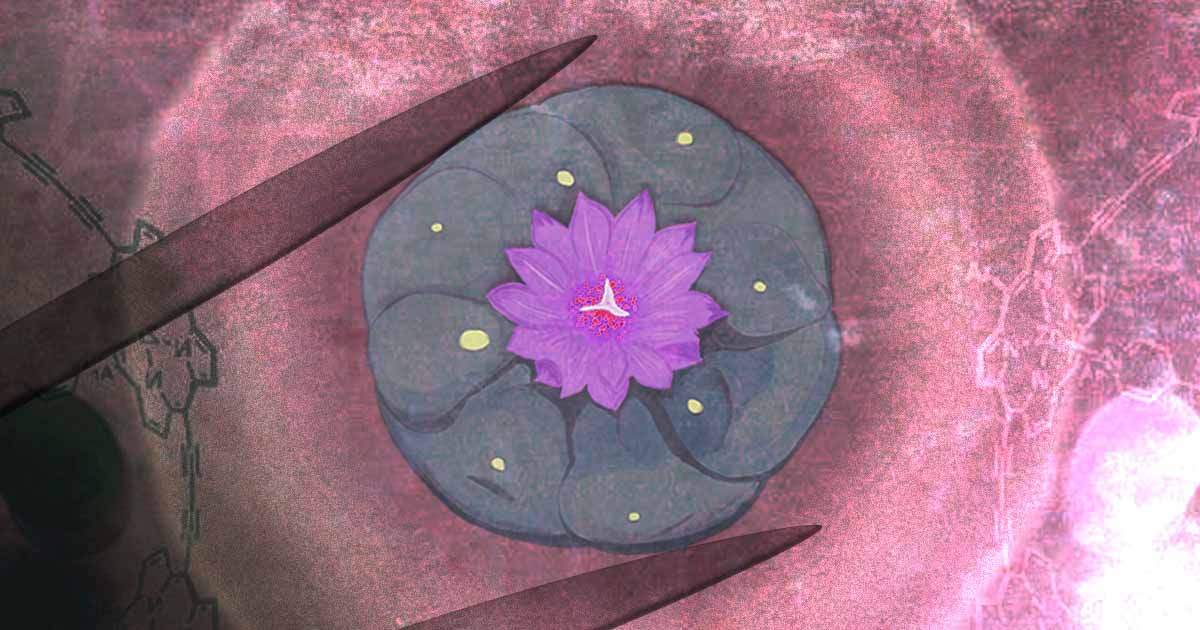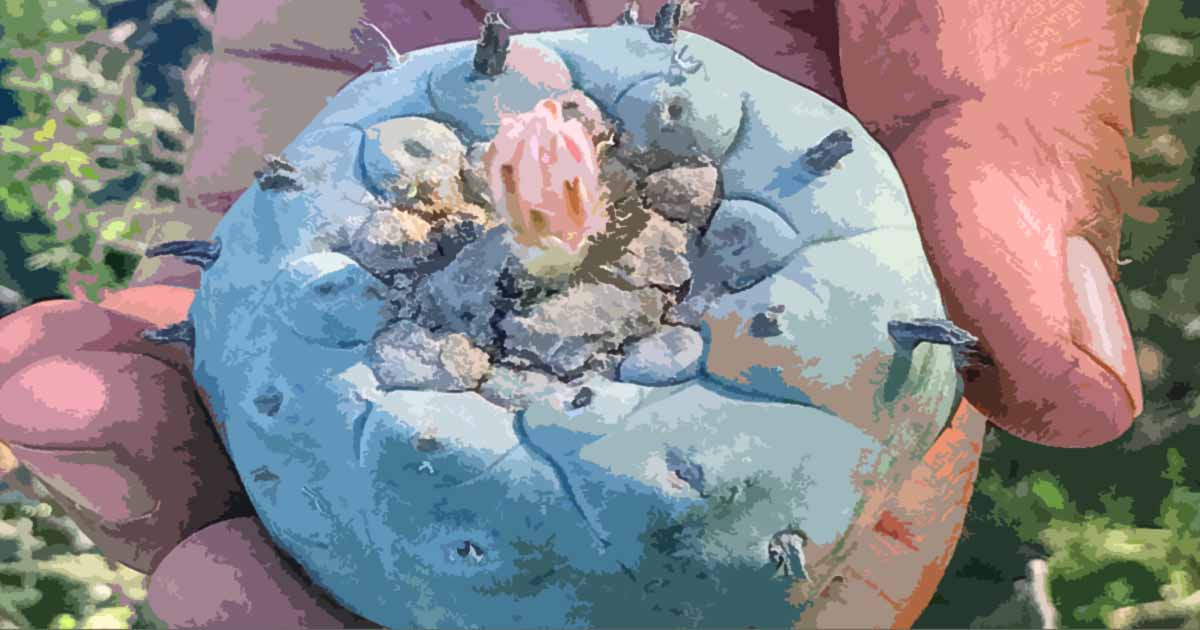When it comes to decriminalizing peyote, the wise Dr. Ian Malcolm from Jurrassic Park may have said it best, “[They] were so preoccupied with whether or not they could that they didn’t stop to think if they should…”

 In May of 2019, Denver became the first city in the U.S. to decriminalize psilocybin, the active ingredient in psychedelic mushrooms.
In May of 2019, Denver became the first city in the U.S. to decriminalize psilocybin, the active ingredient in psychedelic mushrooms.
A movement long in the works was suddenly in the spotlight and the positive reaction from the media to Main Street, USA led to Oakland, California becoming the second city to do so in June of 2019, and Santa Cruz, California becoming the third in January of 2020.
Washington, D.C. did it too, in November of 2020. If only every lawmaker (and hell, every rioter) on Capitol Hill had been forced to eat a handful of shrooms that month the world would absolutely be a better place today.
Also in 2020, Oregon became the first to decriminalize psilocybin statewide. In fact, they decriminalized ALL drugs.
Many of the decrim measures listed above – a list that only includes a fraction of the cities that have since joined this movement – included more than just psilocybin, often adding other entheogens or “plant medicines” like DMT-fueled ayahuasca, or mescaline-producing cacti like peyote.
However, late last year, nearly two years after enacting their 2019 entheogen decriminalization measure, the city of Santa Cruz walked it back and, quite literally, re-criminalized mescaline-producing cacti like peyote.
Not gonna lie, when I first saw these headlines cropping up my initial naive reaction was that peyote was being singled out due to its potency or type of trip. I have never tried it, personally.
The real reason is based on something so rare these days – because it is the right thing to do.
Peyote is Not For Everyone But Mescaline Should Be
Much like other hallucinogens like LSD and psilocybin, mescaline is showing incredible promise in psychotherapy and in the treatment of several psychiatric conditions such as anxiety, depression, and PTSD.
So, clearly, the mescaline is not the issue here, it’s the medicine.
The real reason that the Santa Cruz city council retreated on peyote decriminalization, and the reason that you are now seeing these mescaline-producing cacti being exempted from the 100+ decrim measures being pushed from coast to coast, is due to justified and righteous pushback from Indigenous people who have long considered the plant highly sacred and see its popularization and inevitable commercialization as a threat to its limited existence.
Peyote can only be found in certain limestone soils of the Chihuahuan desert of southern Texas and northern Mexico. With an average size of about three inches wide and two inches tall, the body of the peyote cactus is spineless, soft, and, most often, blue-green to gray-green in color, resembling a button which happens to be one of its nicknames.
From seed, the cactus takes anywhere from 10-15 years to reach this size and maturity to the point where ingesting it would deliver the desired effects from its active ingredient, mescaline.
So, it only grows in a certain region, and it takes a long time to reach a harvestable size, and the U.S. Federal government offers no protection for the plant.
Yeah, I’d keep the psychedelic-bros away from that, too.
For those of us who may still be curious about the healing potential of mescaline, there are synthetic options that should be decriminalized and made available alongside other safe mind-expanding substances.
In the aftermath of the regulatory rollback in Santa Cruz, Decriminalize Santa Cruz – one of the main advocacy groups backing the initial measure – issued an apology “for our lack of cultural sensitivity surrounding the Peyote cacti (Lophophora williamsii) and discounting Indigenous consultation in the process of decriminalizing entheogenic plants and fungi. We were insular in our activism and did not consider the harm we may cause to Indigenous communities who have been using this sacred plant for millennia,” they wrote, adding, “We recognize that the inclusion of the Peyote cacti in our resolution is dangerous because it may contribute to the ongoing Peyote crisis in the sacred gardens of South Texas for generations to come.”

Some activists and advocates for entheogen decriminalization disagree with the scope of the rollback in Santa Cruz which is now part of the blueprint elsewhere, noting that the inclusion of ALL mescaline-producing cacti in their revised language will only serve to keep peyote endangered as its alternatives are now just as illegal.
If you have ever lived in suburban Southern California, you have undoubtedly seen thousands of mescaline-producing San Pedro cacti in your time there… growing right in people’s yards. More often than not, that homeowner had no idea how much of the psychedelic substance they were cultivating in plain sight. It is perfectly legal to grow in California… at least it was… or maybe still is… depending on where you are… and if you harvest it…
Yeah, this patchwork decriminalization is less than ideal, but it is a huge step forward, and the fact that lawmakers are willing to recognize the importance of culture and the danger of scarcity is promising as we lightly tread across the frontier of the psychedelic revolution.
- Can CBD Help Combat Alcohol Binge Drinking? A Study Suggests It Might
- Missouri Hemp Farmers Form Missourians for a Single Market in Attempt to Redefine Regulations
- Restaurant Spotlight: 1811 in Berlin – Timeless Taste in Charlottenburg
- Texas Governor Abbott Vetos Senate Bill 3, Calls For Special Legislative Session
- Petition Calls on Meta to End Cannabis, Psychedelic, and Harm Reduction Communities Censorship
- Texas Expands Medical Cannabis Access with House Bill 46















One Response
Agree whole heartedly first- San Pedro and Peruvian torch aren’t endangered like peyote. Secondly peyote can be cultivated in greenhouses or newly with led technology anywhere in the world. So why is cultivating legal? When cultivation is legal in most of Europe, uk, Canada, etc.
So thank you for shedding light on this most unconstitutional justification ever. Peyote is a wise cacti but if you spend years cultivating it’s so rewarding. Go nasa and led technology!